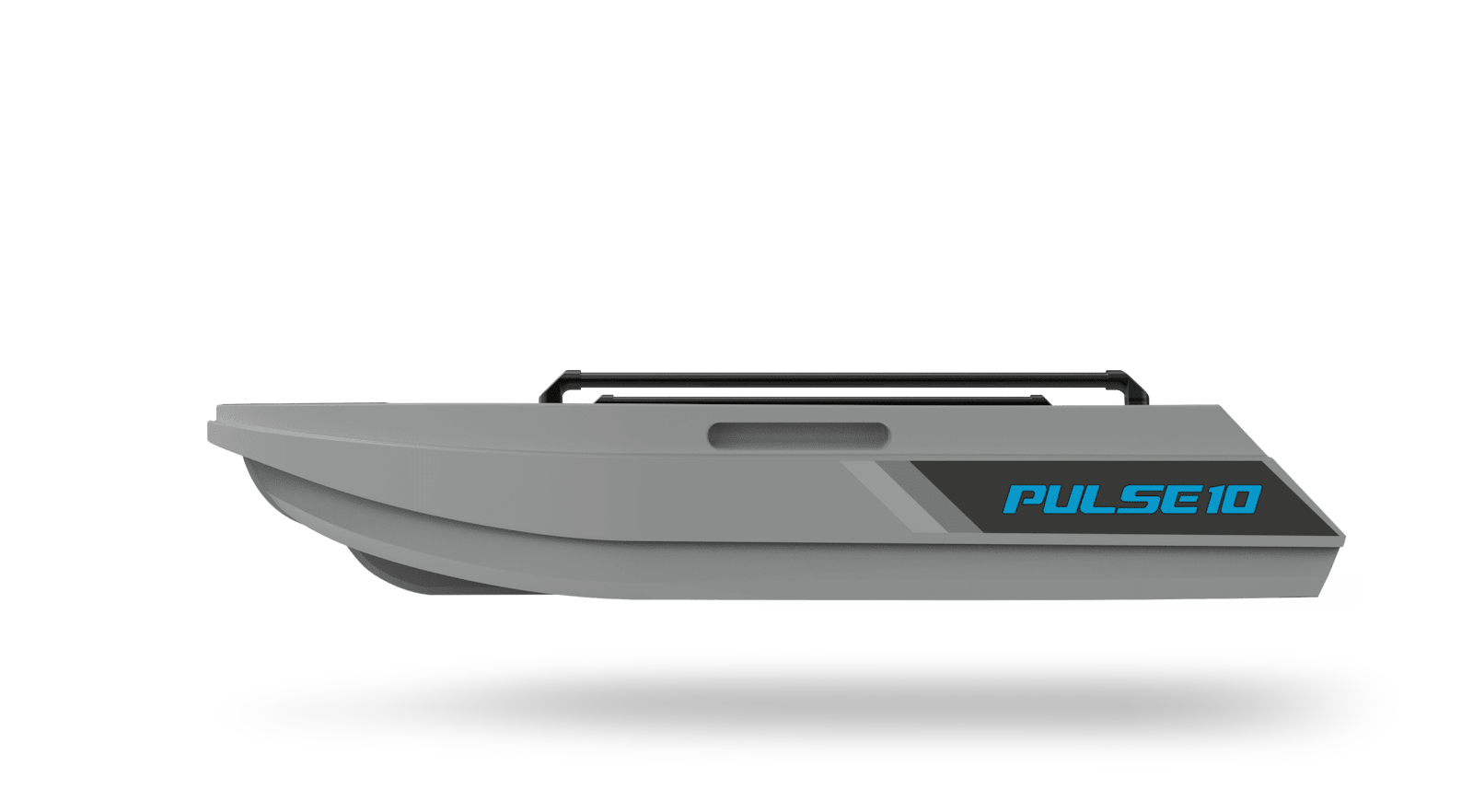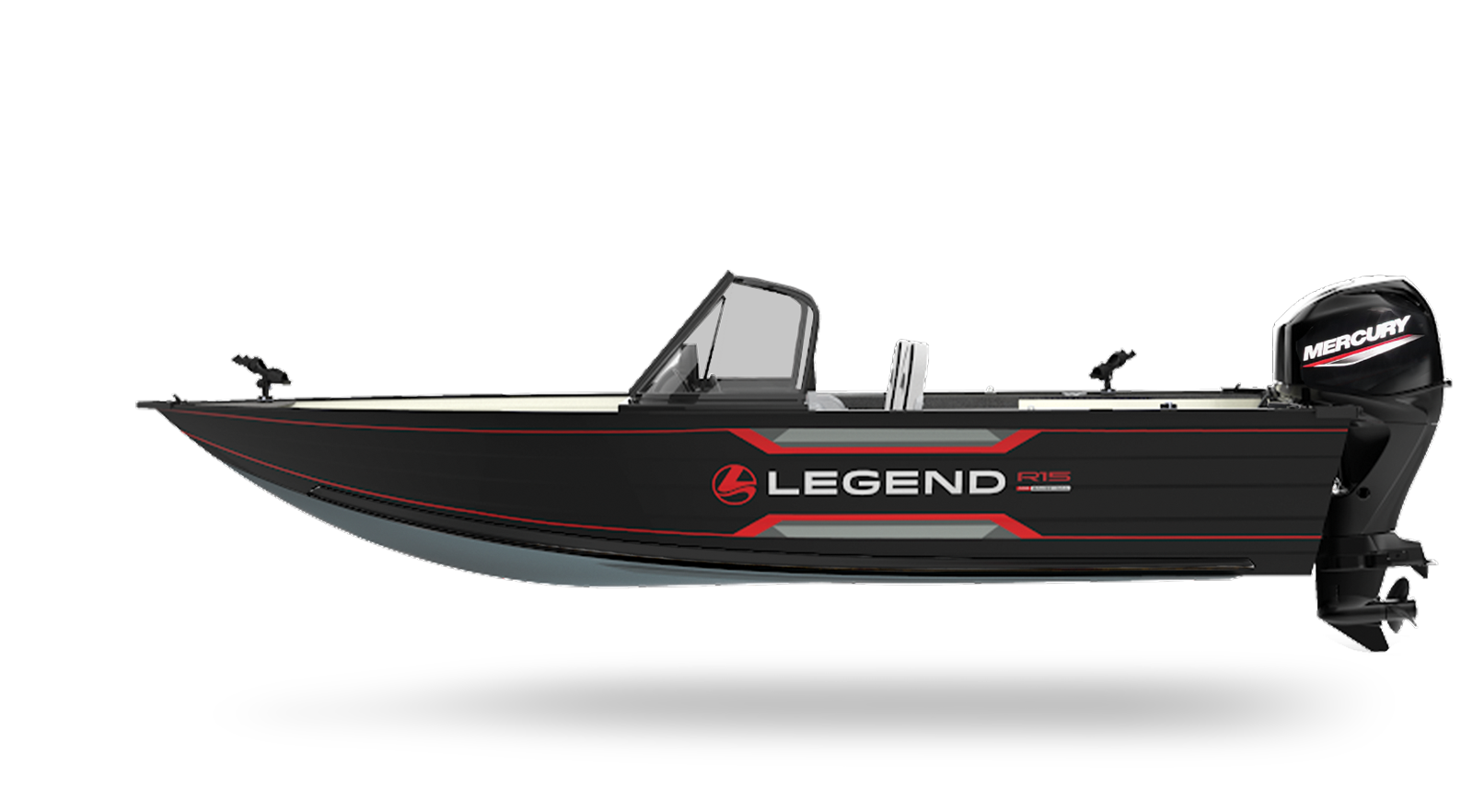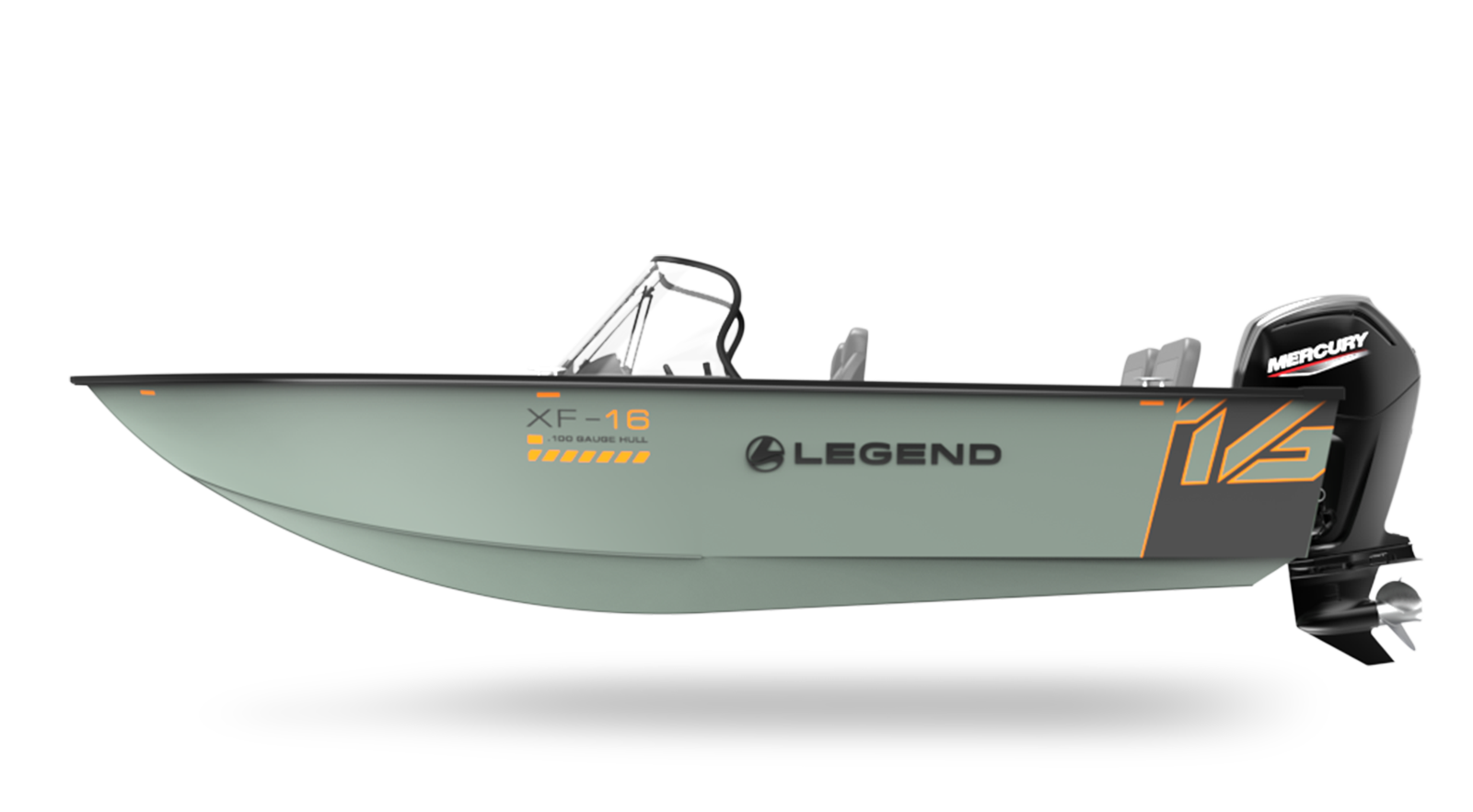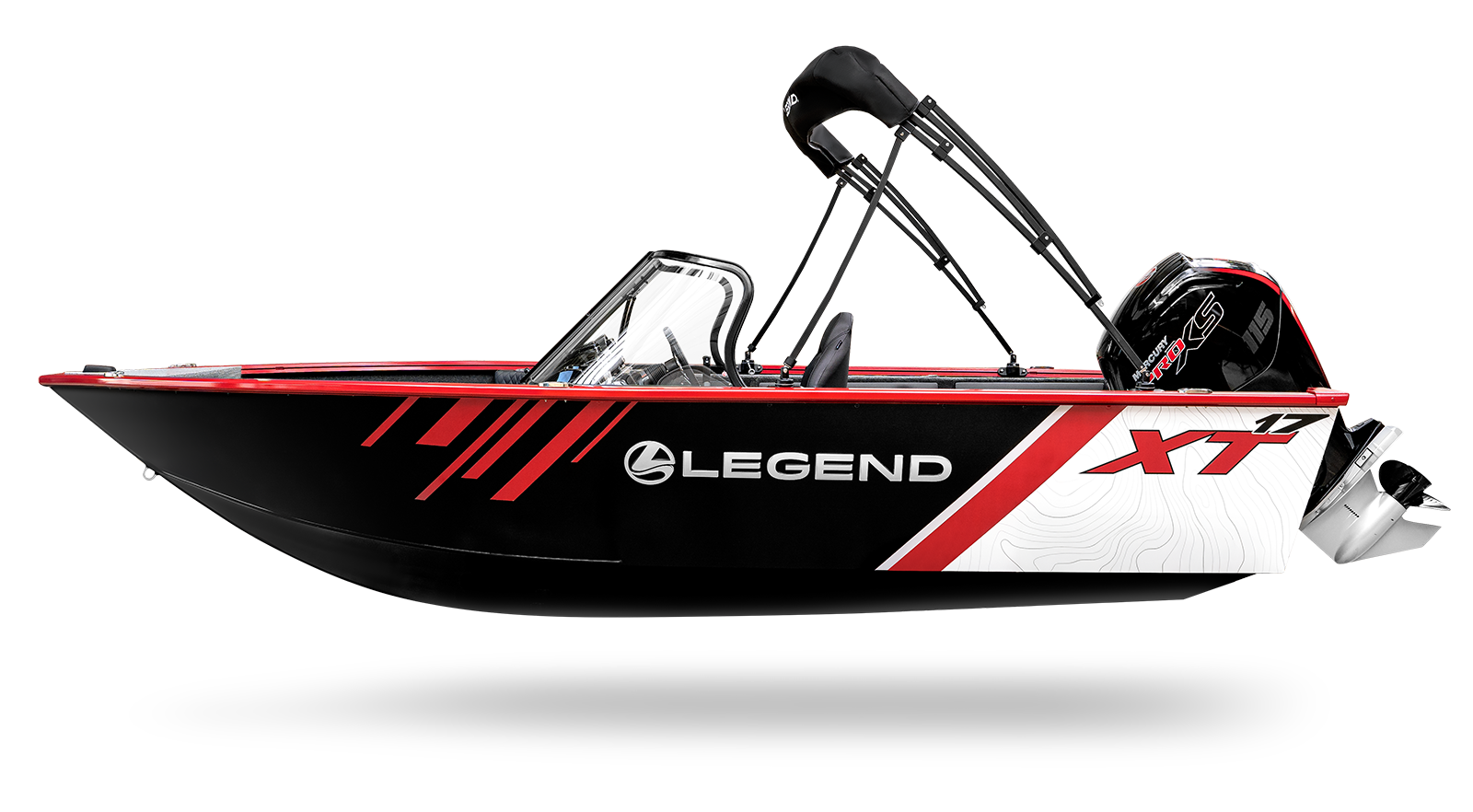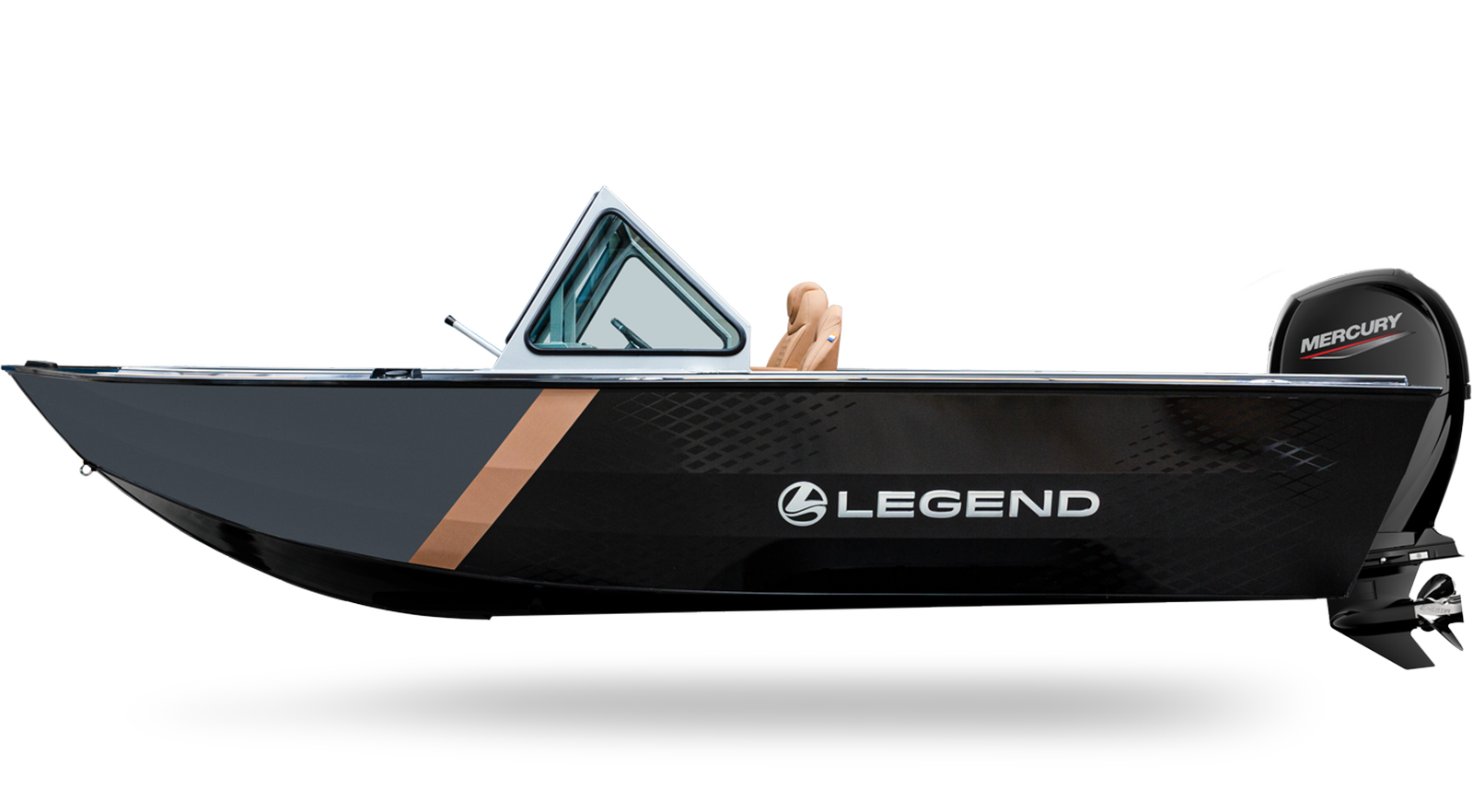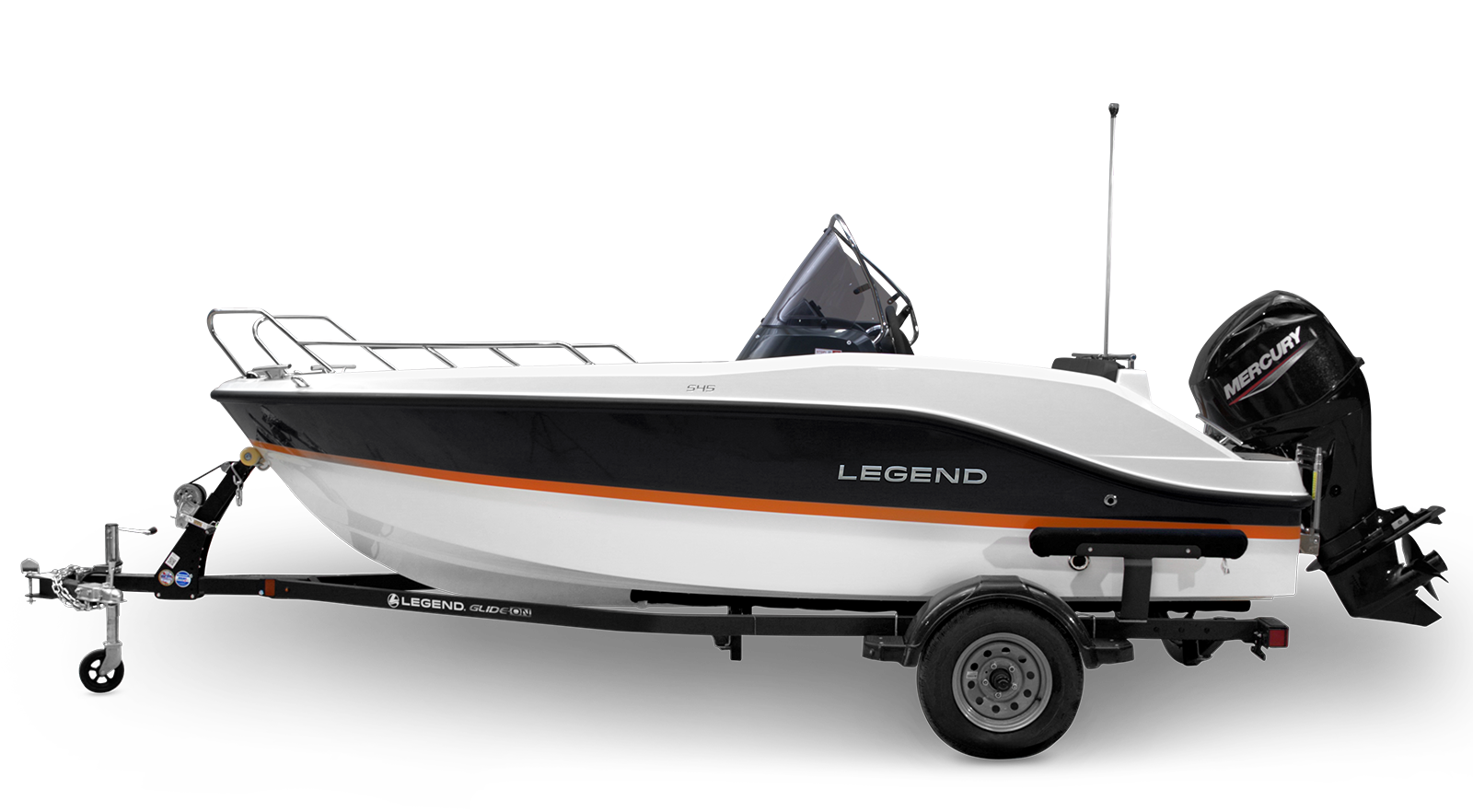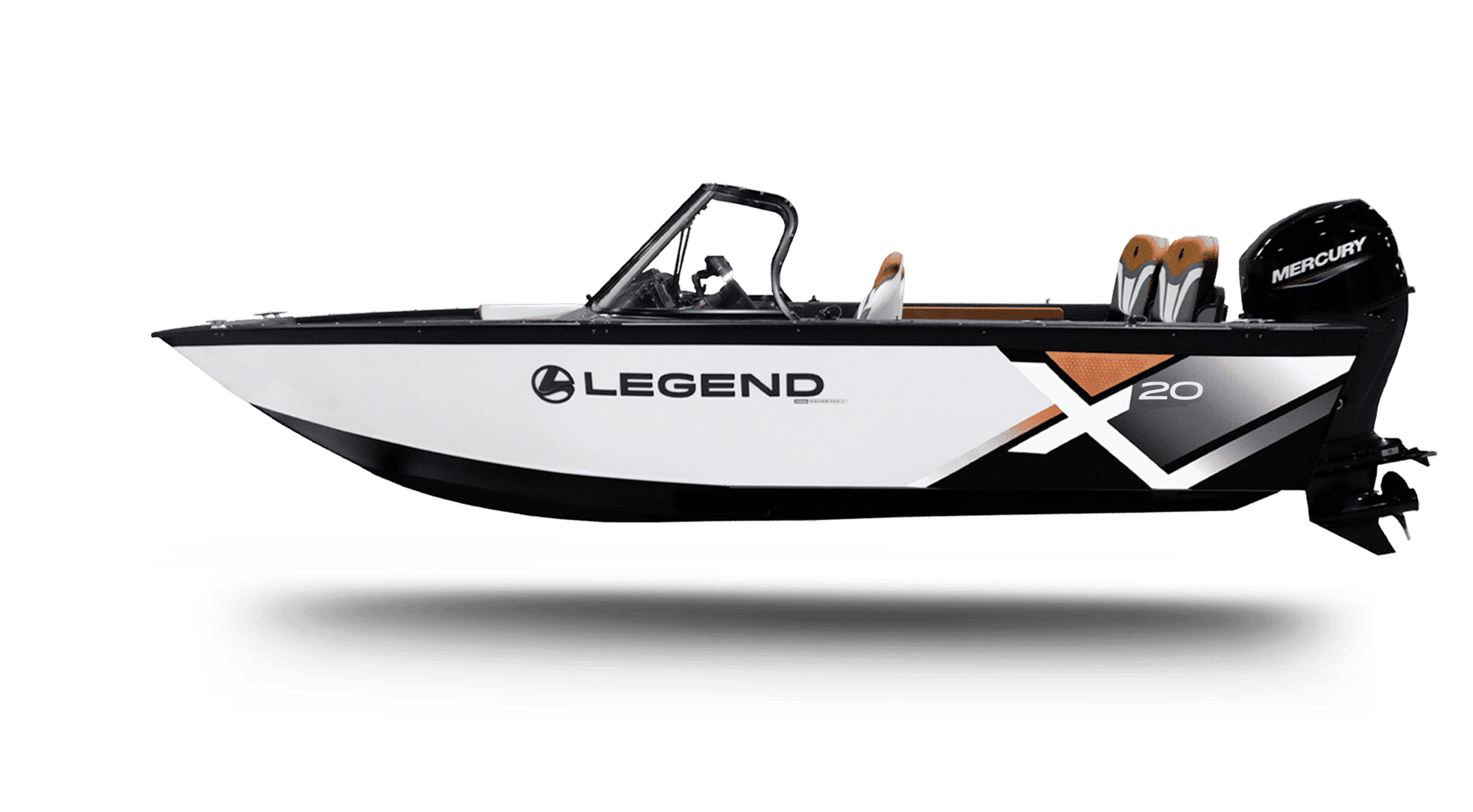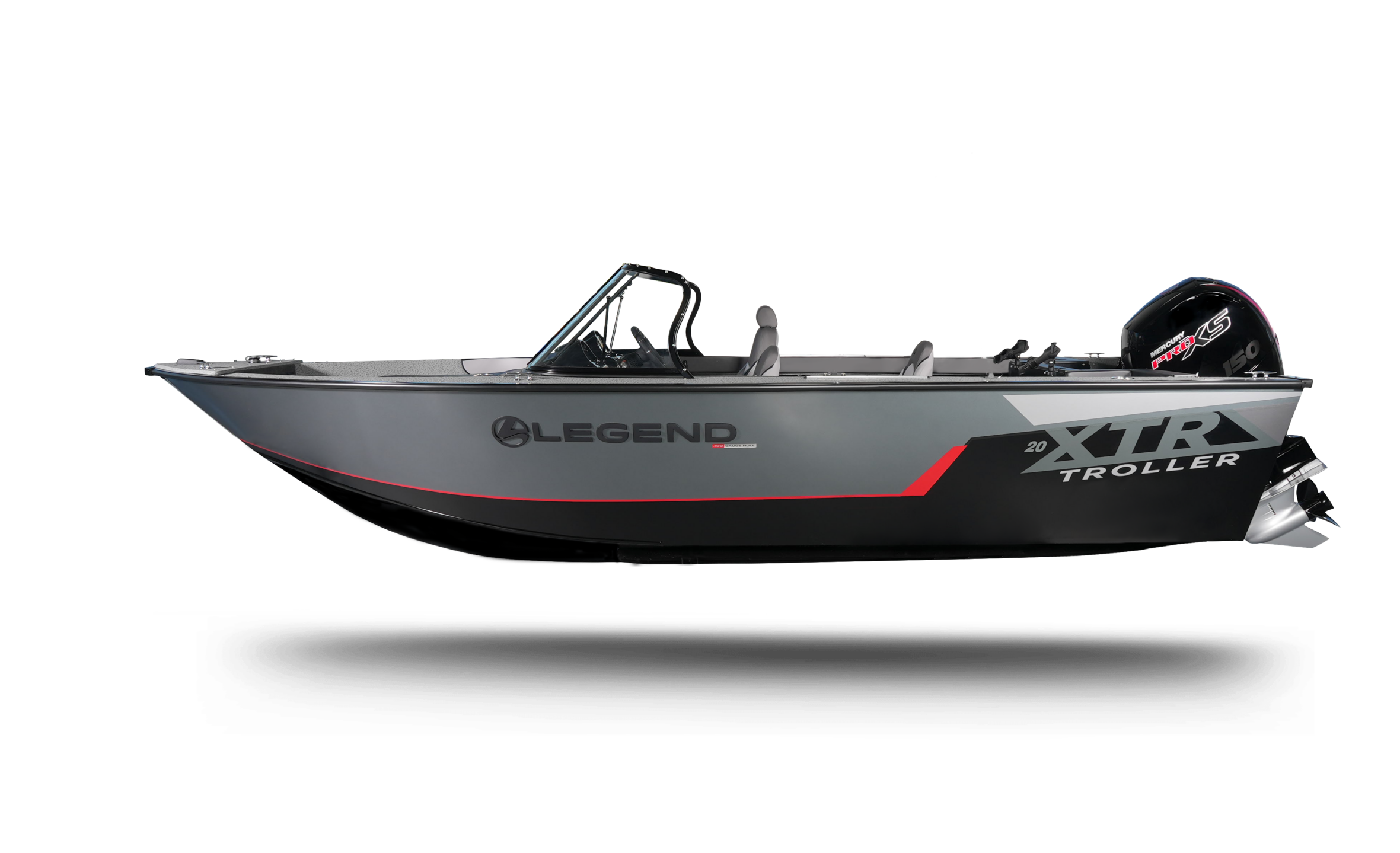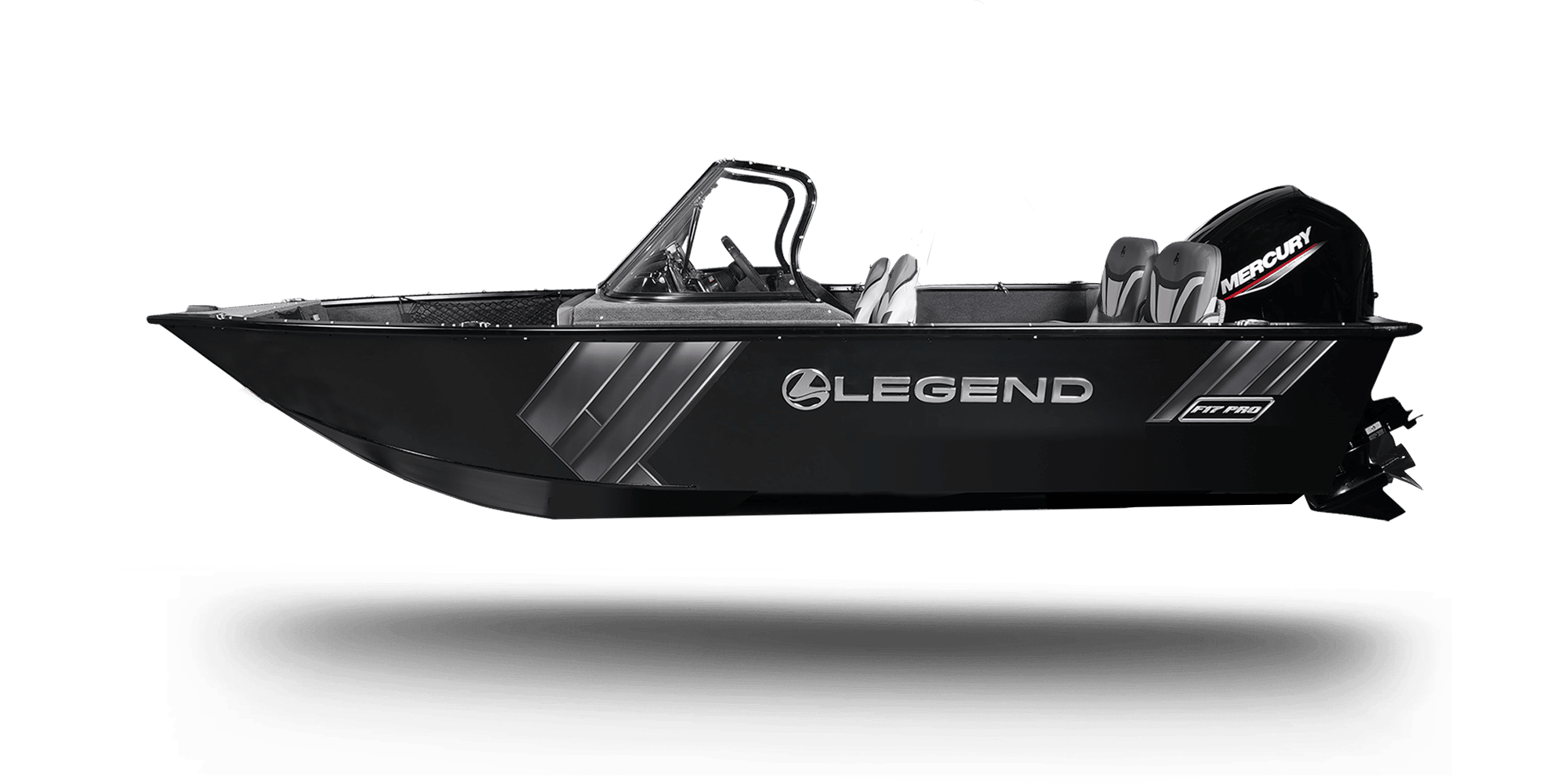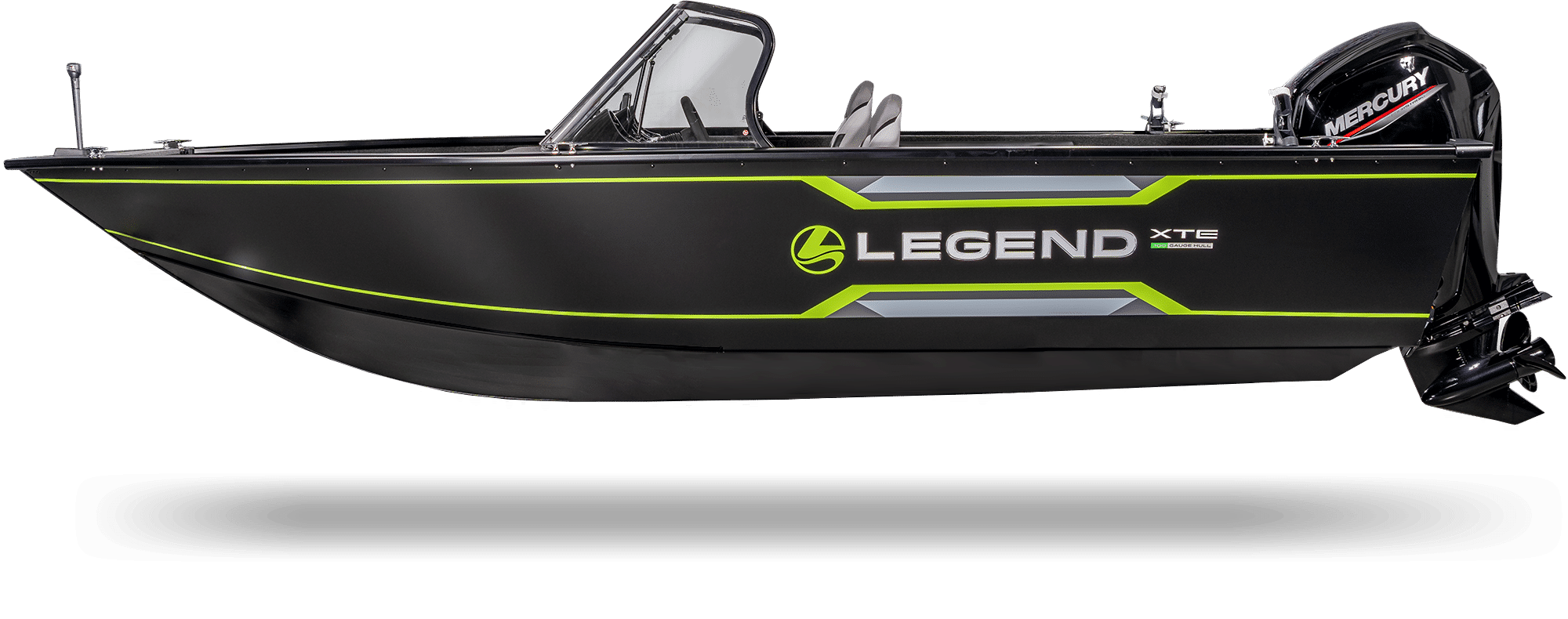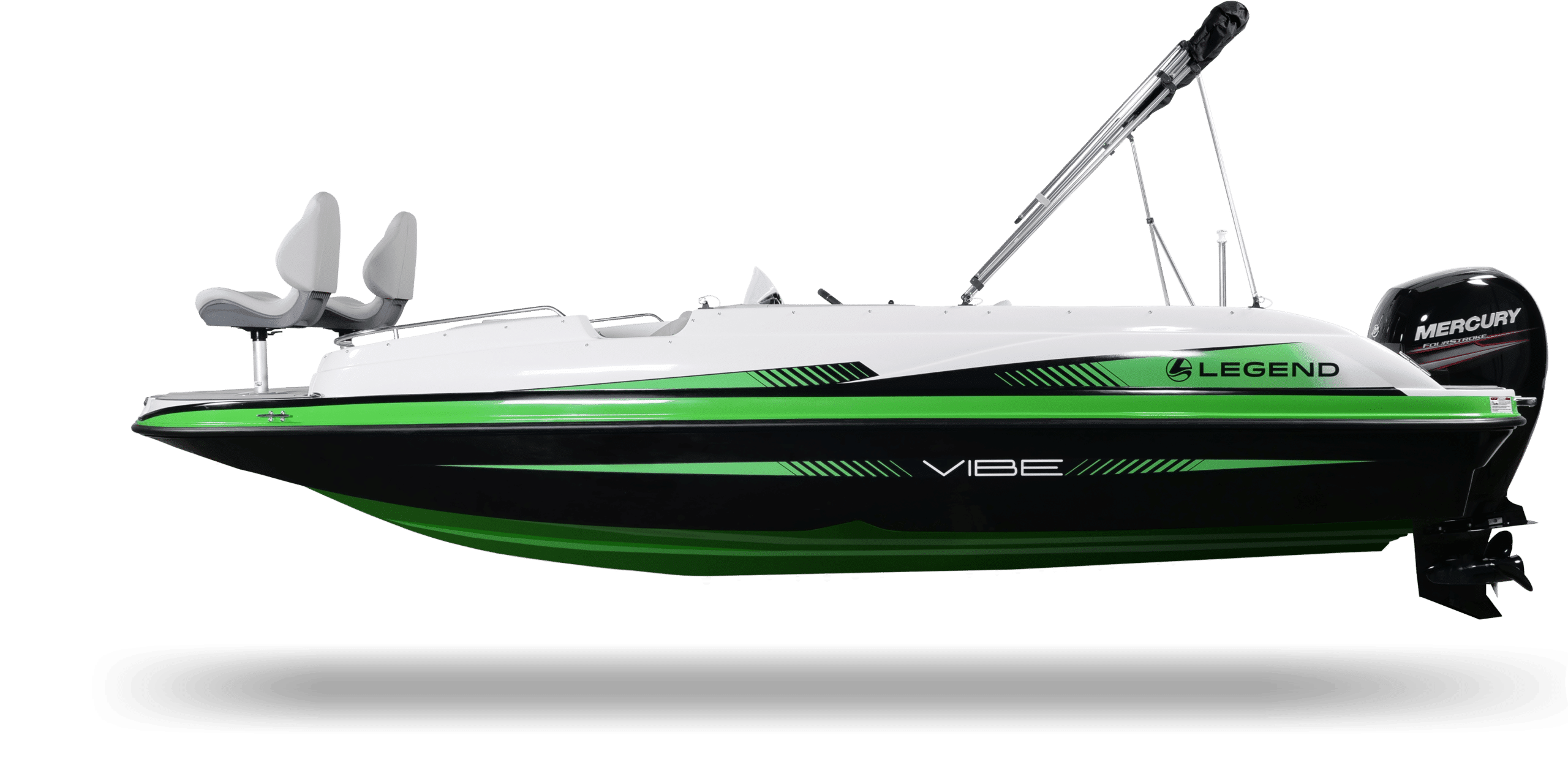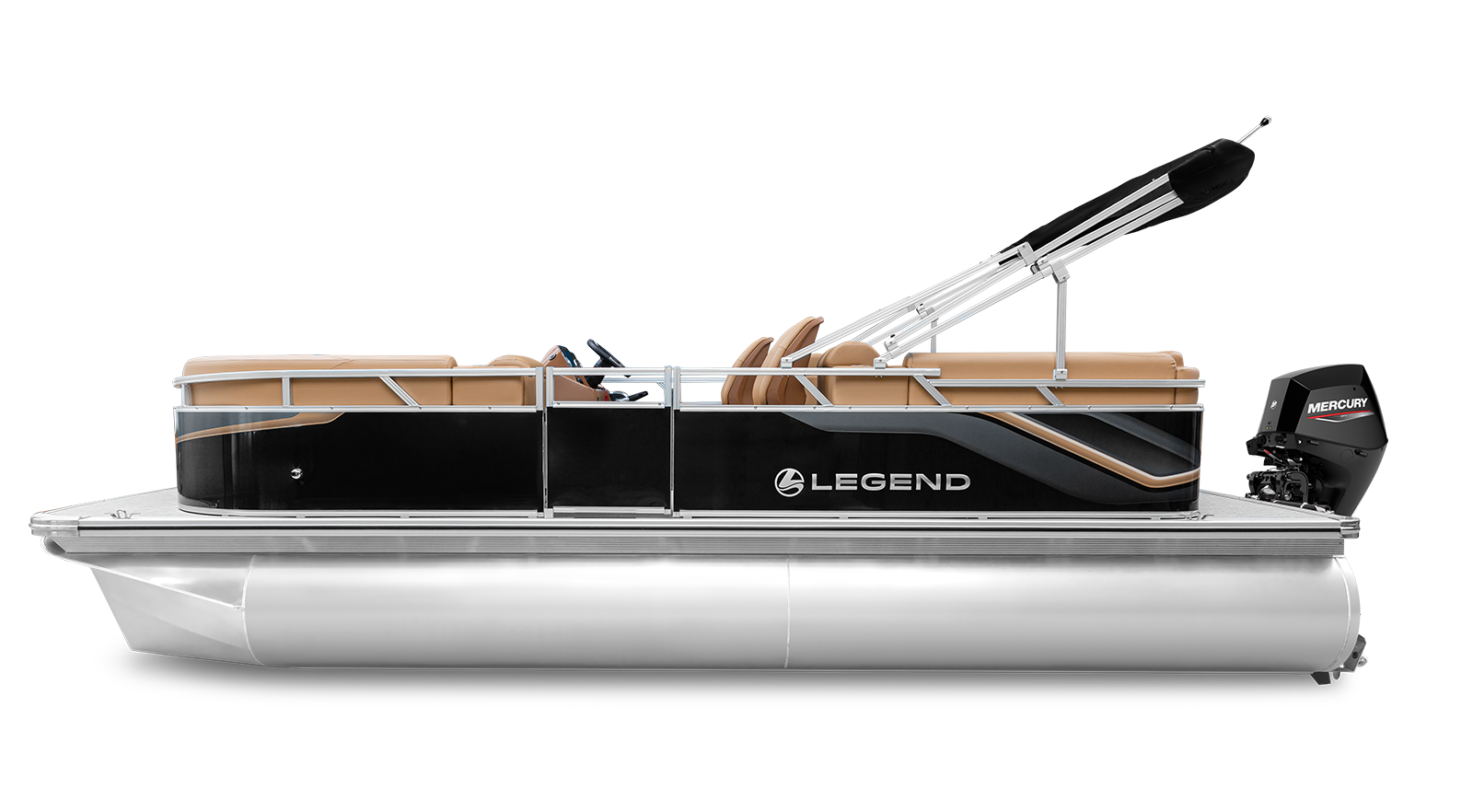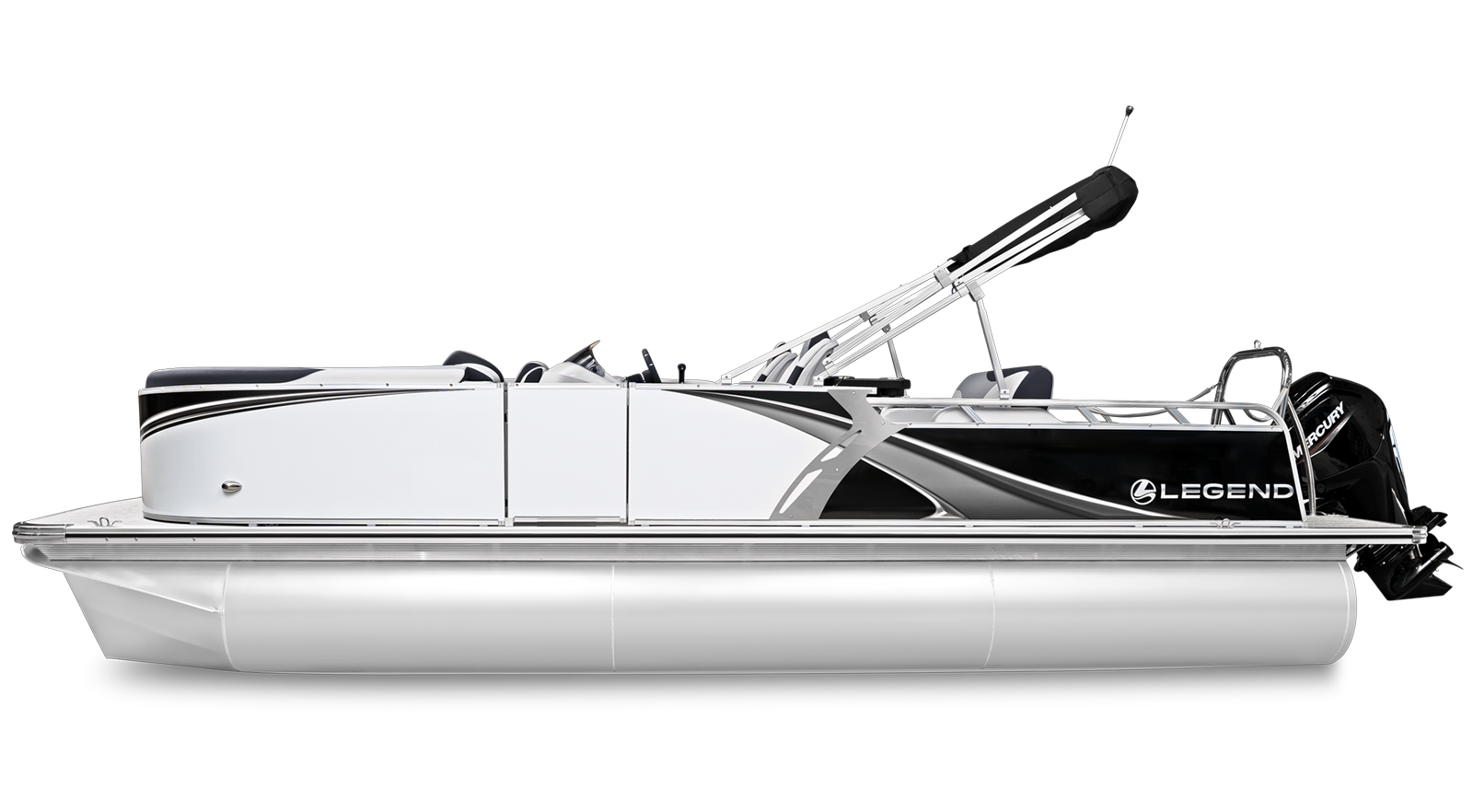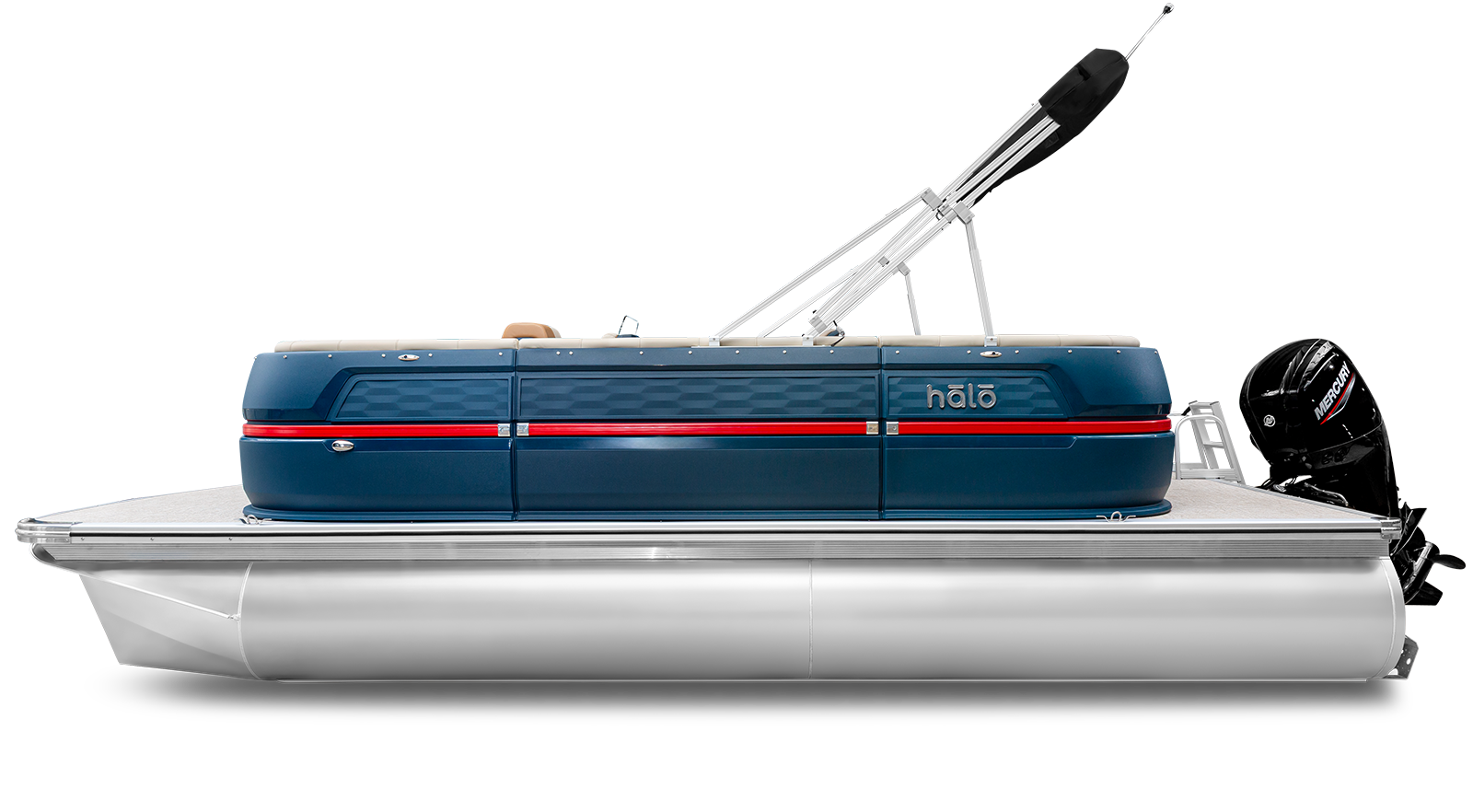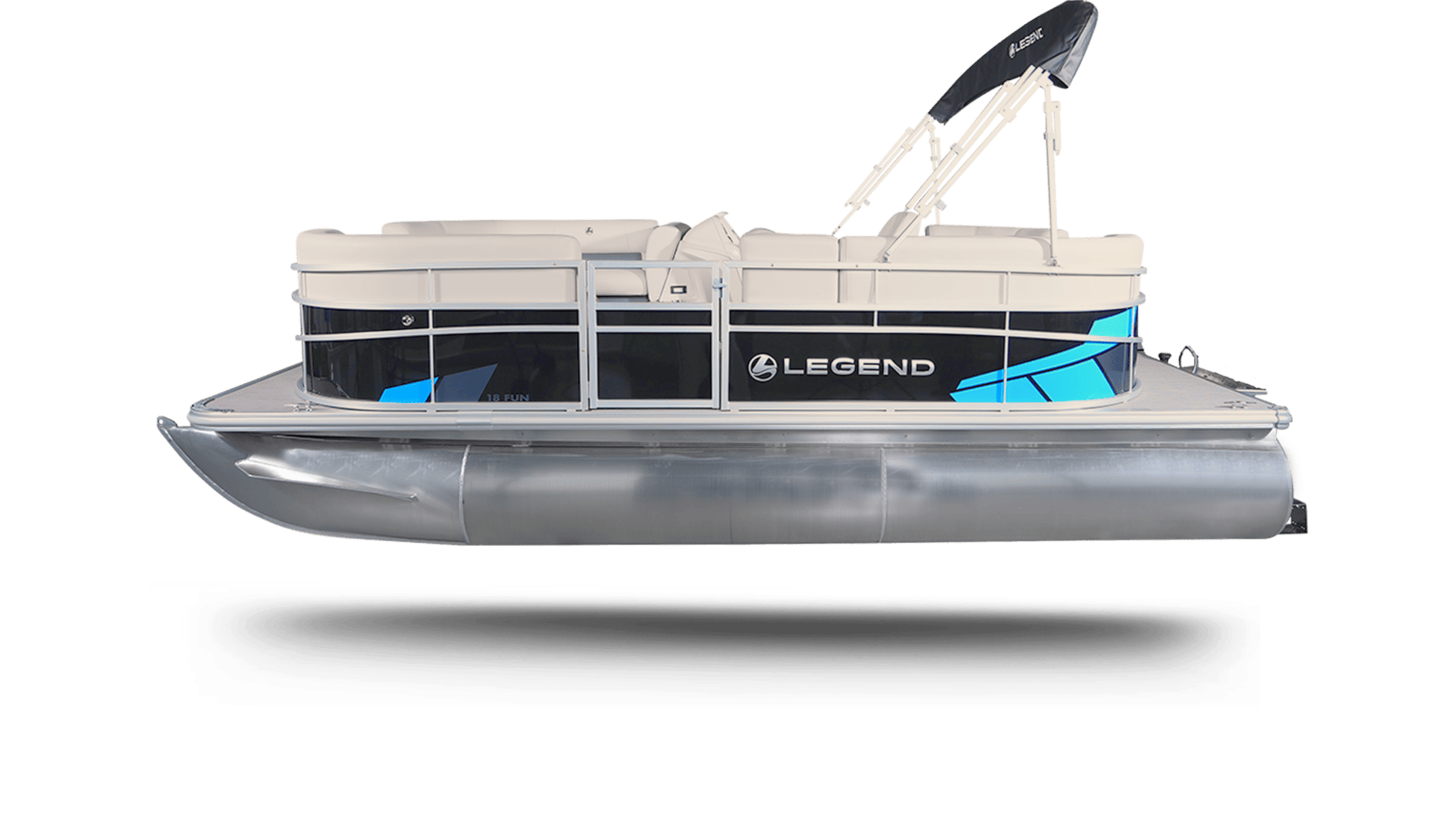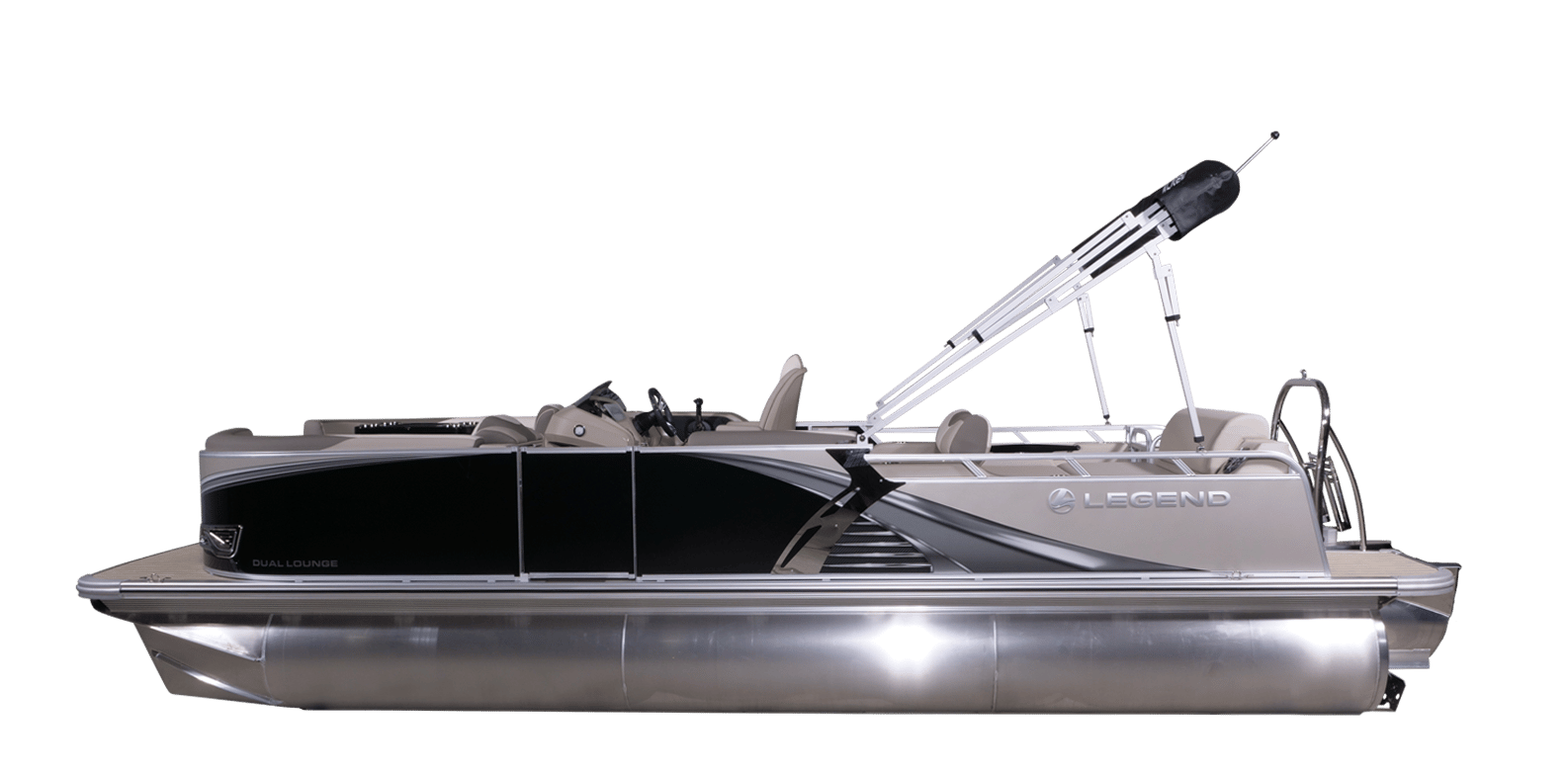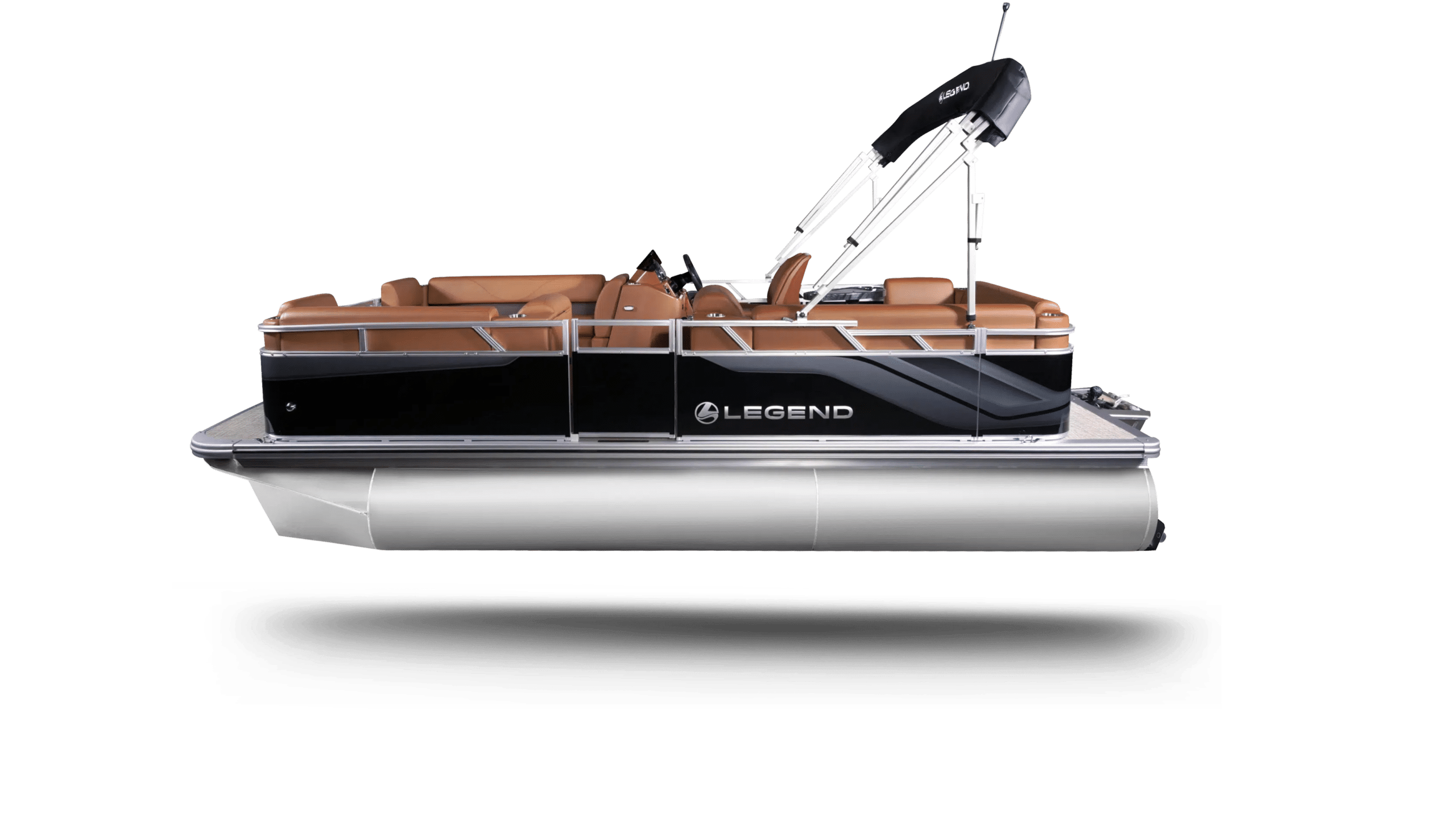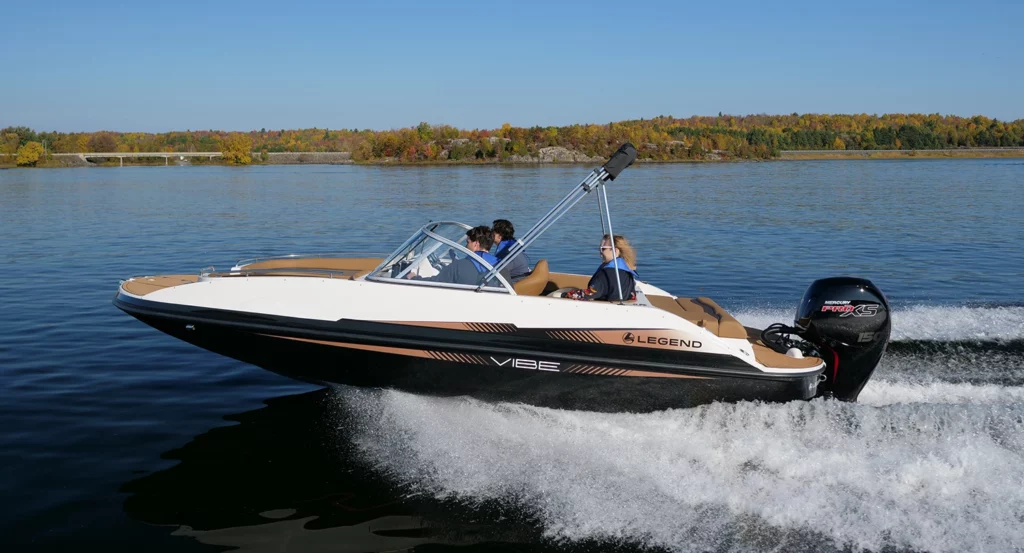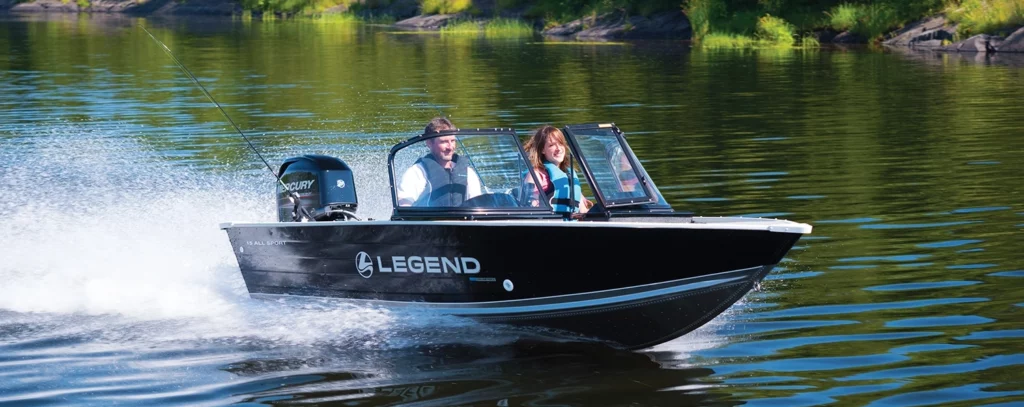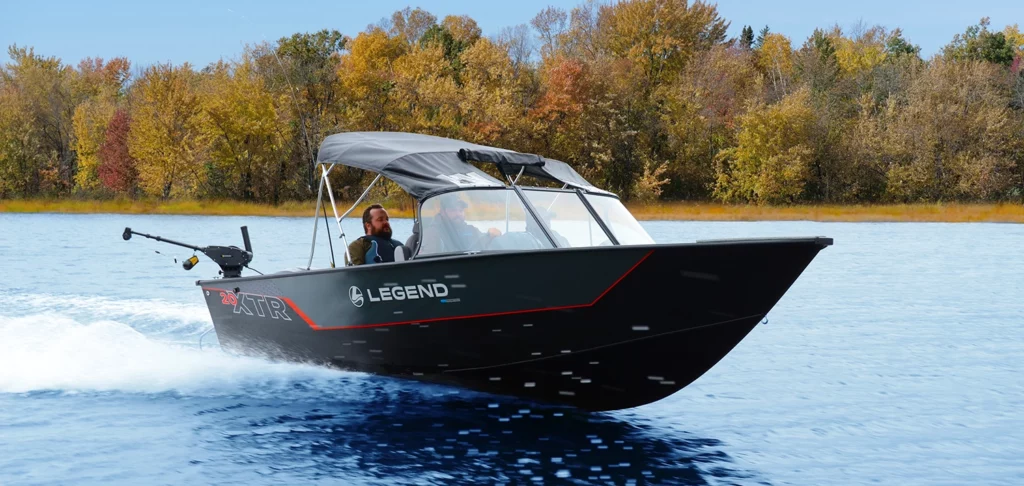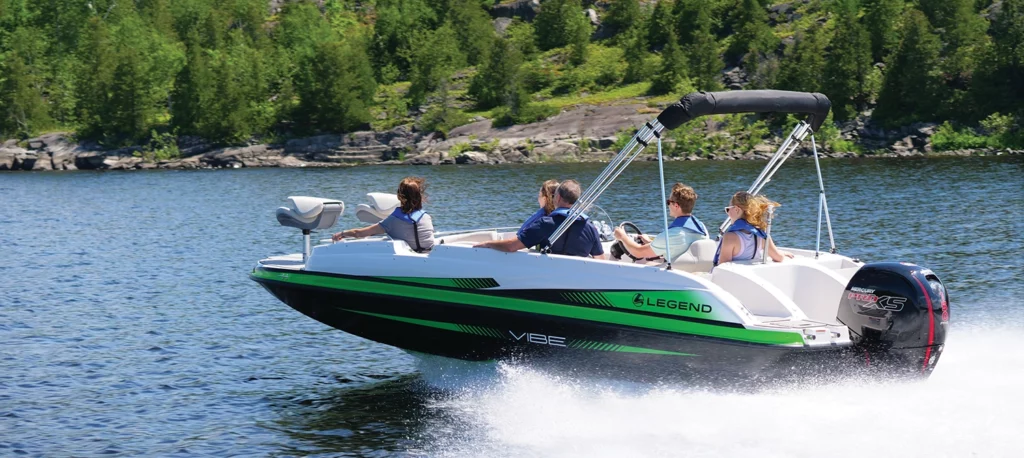Aluminum Vs. Fibreglass: Which Boat Is Best?

Legend Boats manufactures both aluminum (welded and riveted) and fibreglass boats. There are benefits to both choices, but if you’re just getting into the memory-making lifestyle you may not be sure which option is best for you.
To help you decide, we’re breaking down the superior options across the categories you’re most likely to care about. While you’re reading, keep in mind how you plan to use the boat. Both aluminum and fibreglass boats are solid choices, but the final decision should depend on who’s in the boat and where you’re going with it.
Aesthetics:
– Fiberglass –
Aluminum fishing boats look great but when it comes to comparing the two options we have to give it up to fibreglass. Fibreglass is a lot more flexible when it comes to shapes and lines (you can pretty much make any shape you want, as long as it floats), and the paint and gelcoat options and finishes just can’t be matched by aluminum.
Maintenance:
– Aluminum –
To keep your fibreglass boat looking brand new requires frequent bubbles and periodic waxing. Otherwise, paint fades and gel coats crack. Aluminum boats, unless you’re dealing with salt water, only need to be hosed down to keep off the dirt and grime. Both options need proper winter protection so we’re even there.
When it comes to repairs, both boat types require expertise. When it comes down to it, hammering out a dent or patching an aluminum boat is a less time consuming process than repairing a crack or hole on a fibreglass boat. Less time and less money is a win in our books.
Weight and fuel economy:
– Aluminum –
Aluminum boats are by far lighter than fibreglass. This means that motors don’t have to work as hard to get the boat moving and up on plane. So, aluminum boats take the advantage with both speed and fuel efficiency.
Comfort:
– Fiberglass –
As mentioned above aluminum is much lighter than fibreglass. The tradeoff here is that water vibrations and noise travel through the material much easier, making for some discomfort. This works both ways. Any noise made inside of an aluminum boat will travel through the water better, scaring away any fish which may be close by. Also mentioned above, fibreglass is heavier. Although this compromises speed and fuel efficiency, it means that choppy water want toss your boat around as much, keeping it nice and stable.
Durability:
– Aluminum –
When it comes to shoring up on a beach, scraping over some rocks in the shallows or cruising over some underwater logs, fibreglass boats are likely to crack. Aluminum boats, however, are far more likely to endure. Aluminum, especially Legend Boats’ 0.100 gauge, will bounce off most of this. In extreme circumstances you’ll get a dent or tear a seam. But, this is easy enough to repair.
We’d love to hear from you. What are your priorities?
Are you looking for something that you can customize and transform into a truly one-of-a-kind fishing machine? Or, do you want a boat that offers maximum comfort and performance?
We design and manufacture our boats for you and we’re always looking for ways to back more value into each and every Family and Fishing Boat, Deck Boat and Pontoon Boat. Your voice always counts, and we appreciate your feedback.
